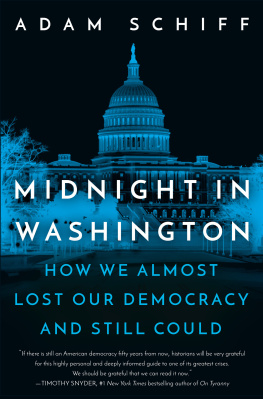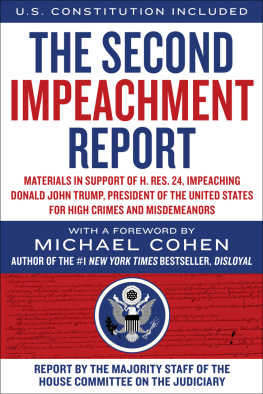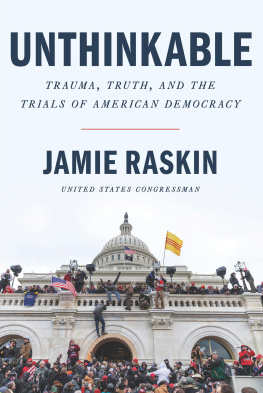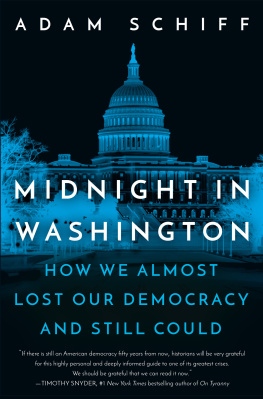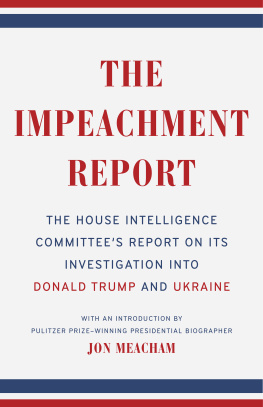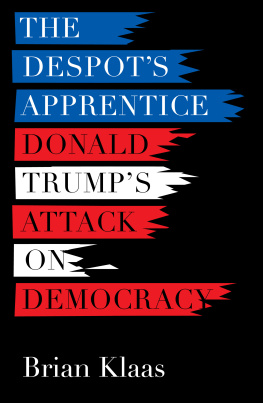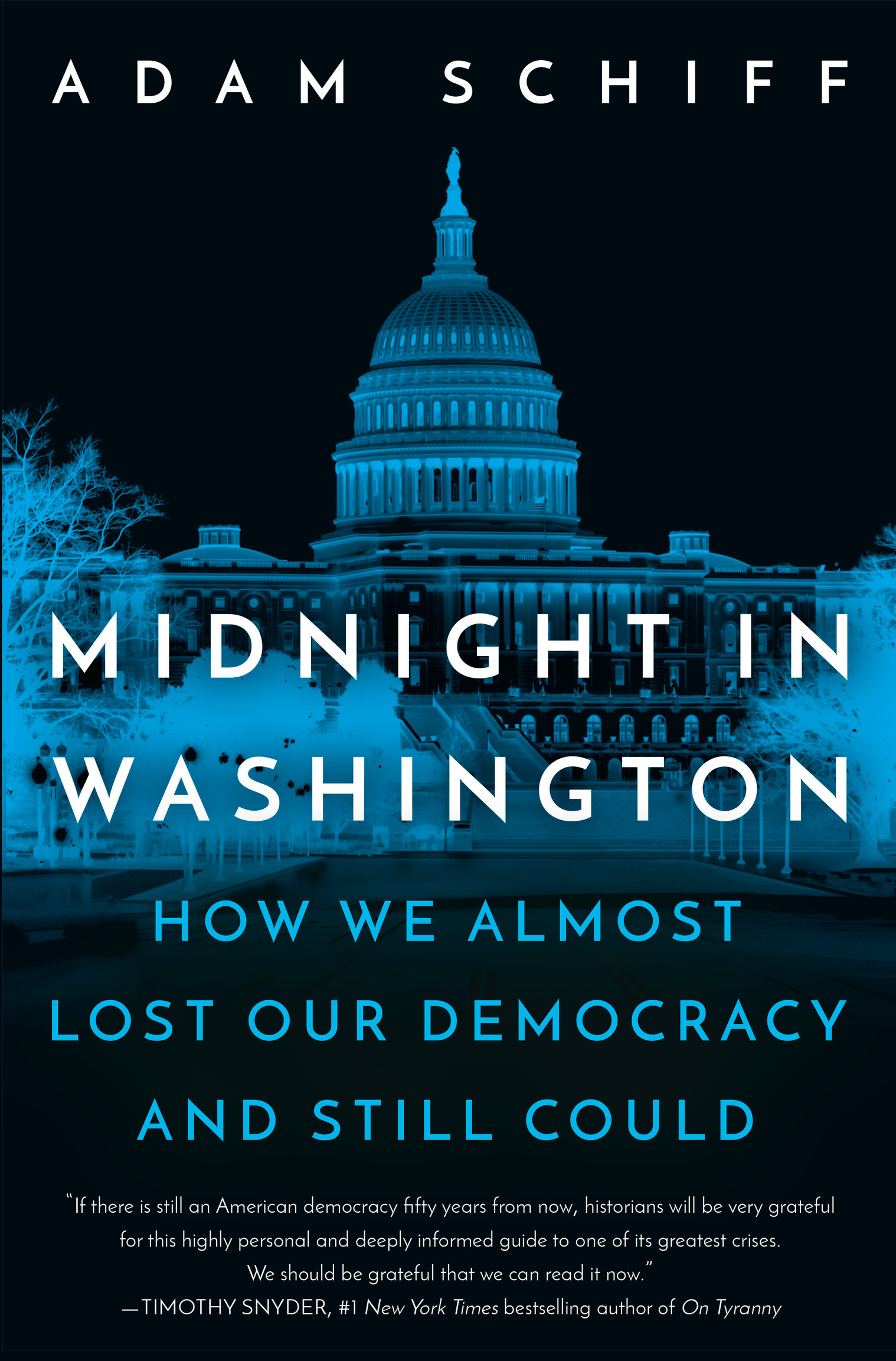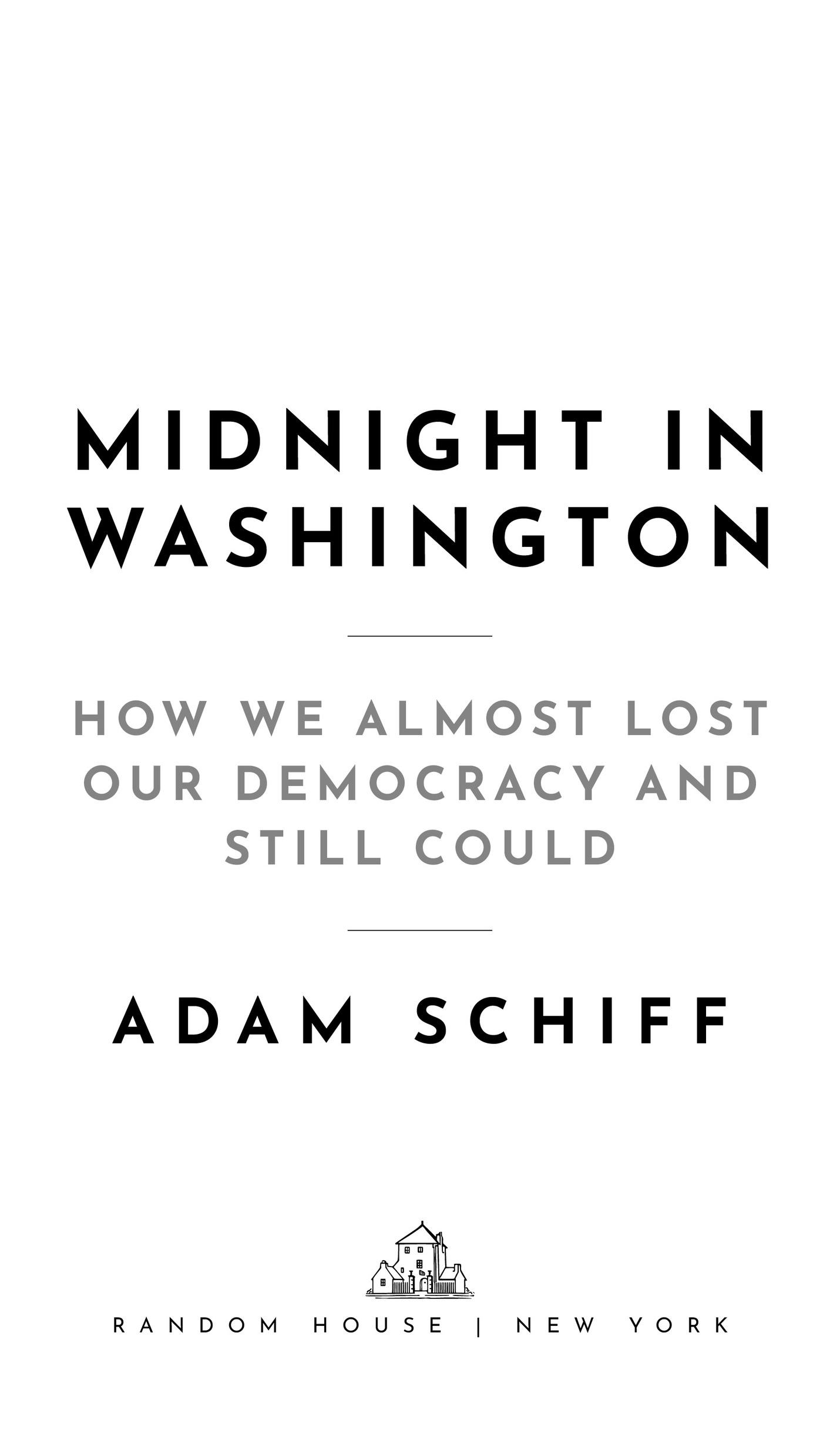Adam B. Schiff - Midnight in Washington: How We Almost Lost Our Democracy and Still Could
Here you can read online Adam B. Schiff - Midnight in Washington: How We Almost Lost Our Democracy and Still Could full text of the book (entire story) in english for free. Download pdf and epub, get meaning, cover and reviews about this ebook. year: 2021, publisher: Random House, genre: Politics. Description of the work, (preface) as well as reviews are available. Best literature library LitArk.com created for fans of good reading and offers a wide selection of genres:
Romance novel
Science fiction
Adventure
Detective
Science
History
Home and family
Prose
Art
Politics
Computer
Non-fiction
Religion
Business
Children
Humor
Choose a favorite category and find really read worthwhile books. Enjoy immersion in the world of imagination, feel the emotions of the characters or learn something new for yourself, make an fascinating discovery.
- Book:Midnight in Washington: How We Almost Lost Our Democracy and Still Could
- Author:
- Publisher:Random House
- Genre:
- Year:2021
- Rating:3 / 5
- Favourites:Add to favourites
- Your mark:
Midnight in Washington: How We Almost Lost Our Democracy and Still Could: summary, description and annotation
We offer to read an annotation, description, summary or preface (depends on what the author of the book "Midnight in Washington: How We Almost Lost Our Democracy and Still Could" wrote himself). If you haven't found the necessary information about the book — write in the comments, we will try to find it.
Engaging and informative . . . a manual for how to probe and question power, how to hold leaders accountable in a time of diminishing responsibility.TheWashington Post
In the years leading up to the election of Donald Trump, Congressman Adam Schiff had already been sounding the alarm over the resurgence of autocracy around the world, and the threat this posed to the United States. But as he led the probe into Donald Trumps Russia and Ukraine-related abuses of presidential power, Schiff came to the terrible conclusion that the principal threat to American democracy now came from within.
In Midnight in Washington, Schiff argues that the Trump presidency has so weakened our institutions and compromised the Republican Party that the peril will last for years, requiring unprecedented vigilance against the growing and dangerous appeal of authoritarianism. The congressman chronicles step by step just how our democracy was put at such risk, and traces his own path to meeting the crisisfrom serious prosecutor, to congressman with an expertise in national security and a reputation for bipartisanship, to liberal lightning rod, scourge of the right, and archenemy of a president. Schiff takes us inside his team of impeachment managers and their desperate defense of the constitution amid the rise of a distinctly American brand of autocracy.
Deepening our understanding of prominent public moments, Schiff reveals the private struggles, the internal conflicts, and the triumphs of courage that came with defending the republic against a lawless presidentbut also the slow surrender of people that he had worked with and admired to the dangerous immorality of a president engaged in an historic betrayal of his office. Schiffs fight for democracy is one of the great dramas of our time, told by the man who became the presidents principal antagonist. It is a story that began with Trump but does not end with him, taking us through the disastrous culmination of the presidency and Schiffs account of January 6, 2021, and how the anti-democratic forces Trump unleashed continue to define his party, making the future of democracy in America more uncertain than ever.
Adam B. Schiff: author's other books
Who wrote Midnight in Washington: How We Almost Lost Our Democracy and Still Could? Find out the surname, the name of the author of the book and a list of all author's works by series.

